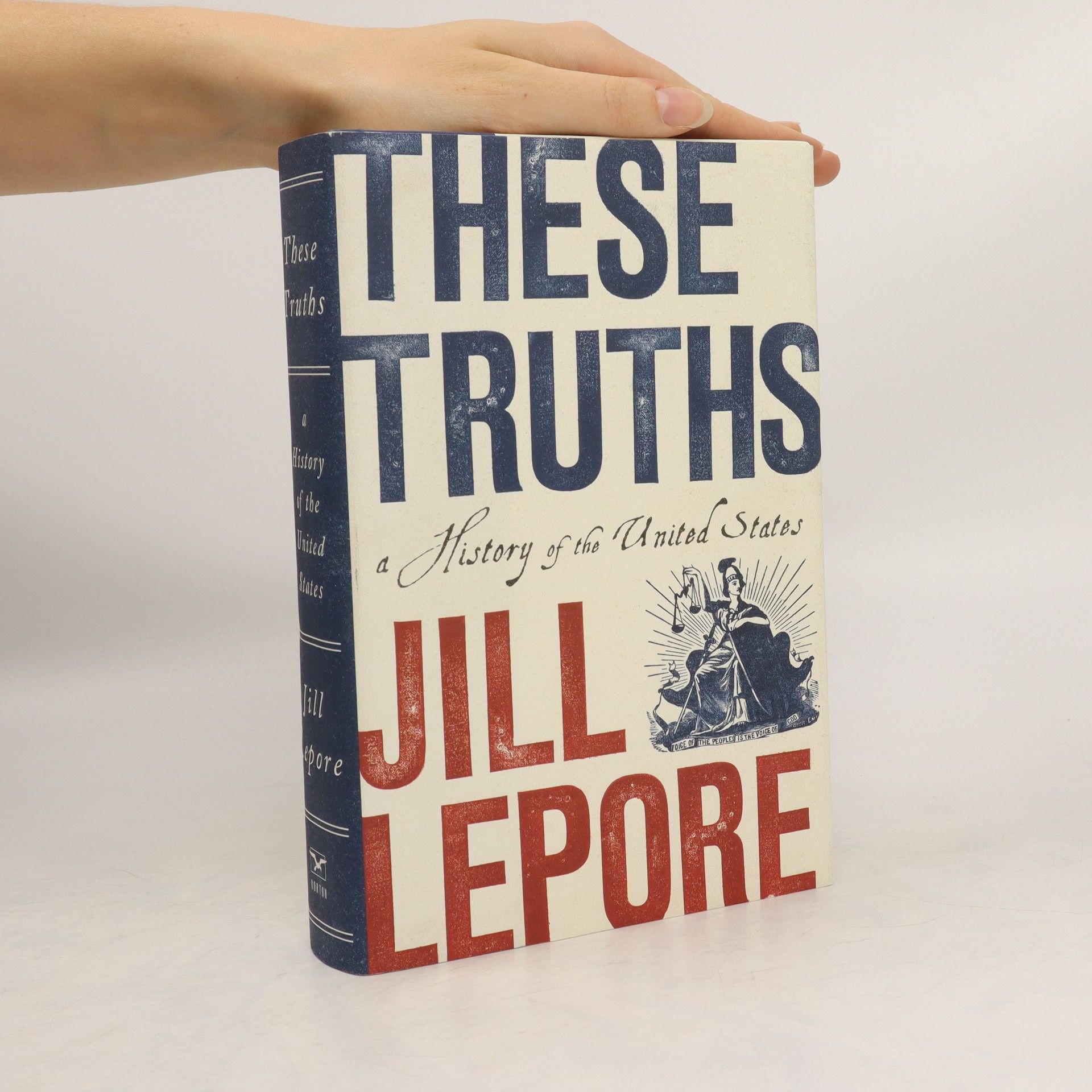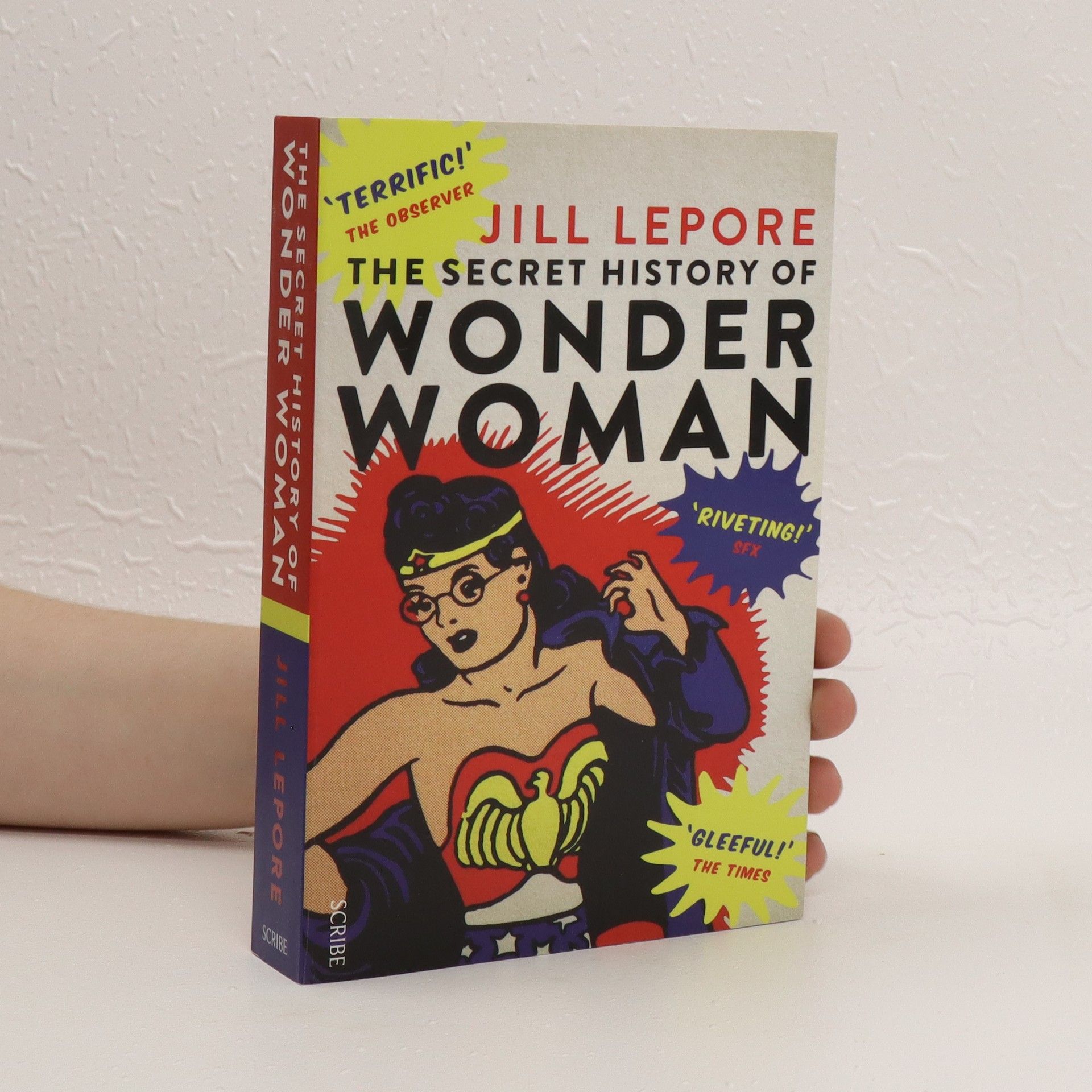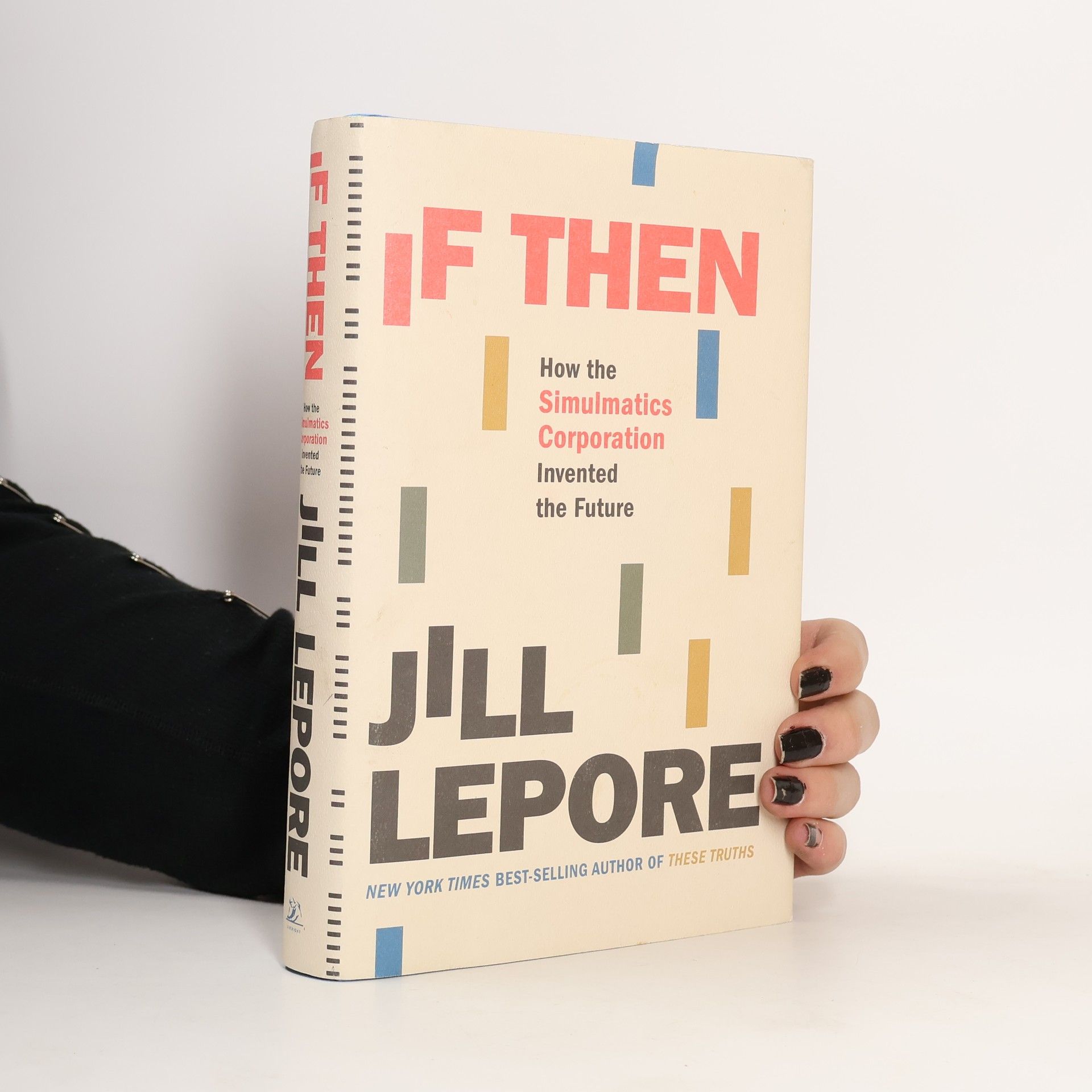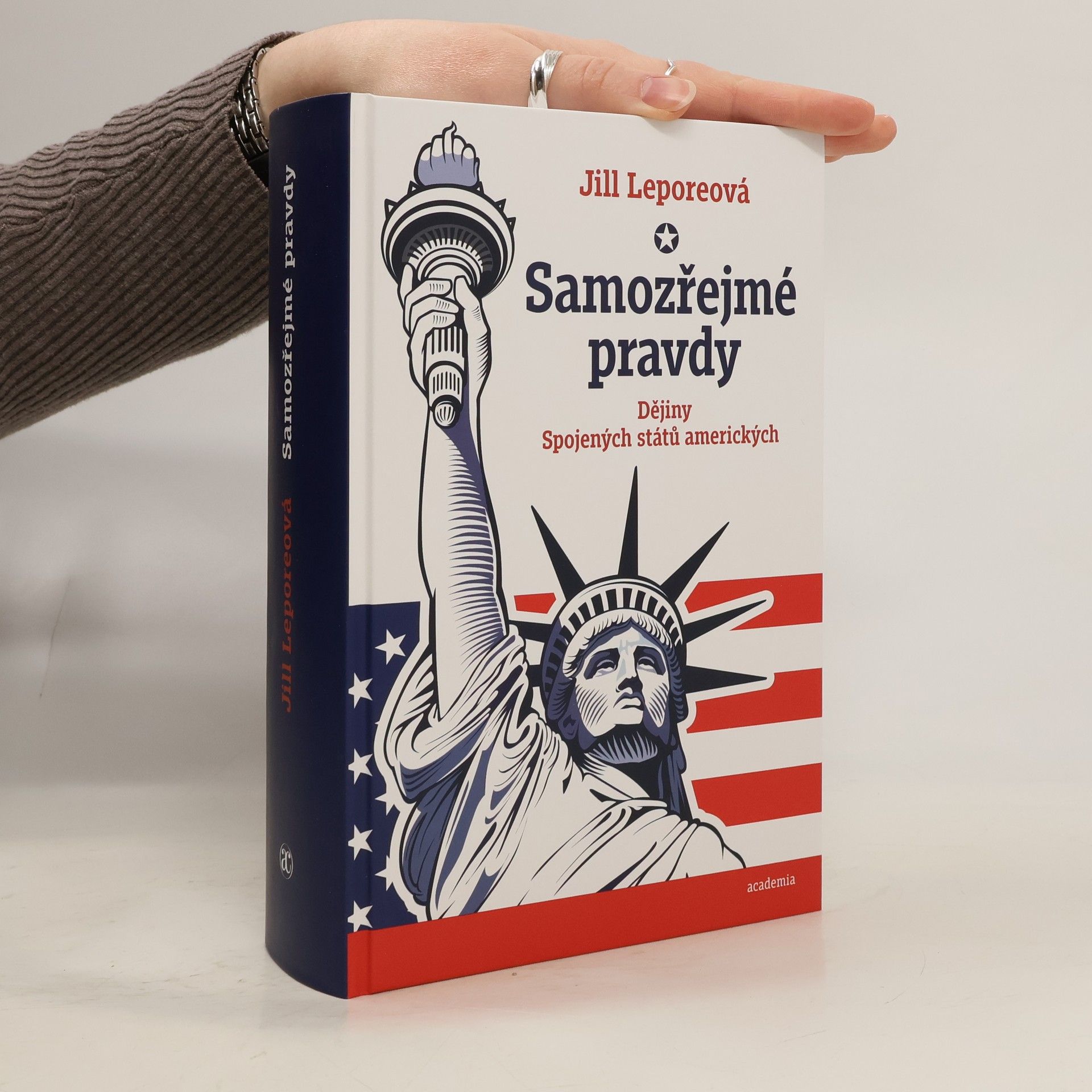The book features 275 previously unseen photographs taken by Paul McCartney during the transformative period from late 1963 to early 1964, when The Beatles skyrocketed to international fame. Captured across six iconic cities—Liverpool, London, Paris, New York, Washington, D.C., and Miami—these images provide a unique glimpse into a pivotal moment in music history, showcasing the band's rise and the cultural impact they had during this explosive time.
Jill Lepore Livres
Jill Lepore est une professeure renommée d'histoire américaine et une rédactrice pour le New Yorker, reconnue pour ses explorations approfondies du passé de la nation. Son travail aborde des questions sociétales complexes, tissant habilement des récits historiques avec une perspective unique qui éclaire le présent. Lepore examine dans ses écrits comment le passé façonne notre réalité actuelle et comment les récits historiques sont continuellement remodelés. Elle est célébrée pour un style qui allie rigueur scientifique et grâce littéraire, rendant ses contributions accessibles et captivantes pour un large public.






These truths : a history of the United States
- 932pages
- 33 heures de lecture
In a sweeping one-volume account of American history, award-winning historian Jill Lepore presents a profound exploration of the nation's origins and divisions. Her work emphasizes the importance of truth—anchored in facts and evidence—as central to understanding America’s past. The American experiment is built on three foundational ideas: political equality, natural rights, and the sovereignty of the people, all of which require a fearless commitment to inquiry for self-governance to thrive. Beginning in 1492, Lepore examines whether the events of over five centuries have upheld or contradicted these truths. She intertwines the histories of American politics, law, journalism, and technology, spanning from colonial town meetings to modern Internet polls. Her narrative features a diverse array of figures, including prominent leaders and lesser-known activists, such as Frederick Douglass, William Jennings Bryan, Pauli Murray, and Phyllis Schlafly. Lepore asserts that Americans are descendants of both oppressors and the oppressed, and she reflects on the ongoing struggle over the meaning of the nation’s history. Engaging with this past is essential to citizenship, as it is an inheritance that cannot be ignored. "The past is an inheritance, a gift and a burden," she notes, urging readers to confront it.
The Deadline: Essays
- 640pages
- 23 heures de lecture
TIME • 10 Best Books of August 2023A book to be read and kept for posterity, The Deadline is the art of the essay at its best. Few, if any, historians have brought such insight, wisdom, and empathy to public discourse as Jill Lepore. Arriving at The New Yorker in 2005, Lepore, with her panoptical range and razor-sharp style, brought a transporting freshness and a literary vivacity to everything from profiles of long-dead writers to urgent constitutional analysis to an unsparing scrutiny of the woeful affairs of the nation itself. The astonishing essays collected in The Deadline offer a prismatic portrait of Americans’ techno-utopianism, frantic fractiousness, and unprecedented―but armed―aimlessness. From lockdowns and race commissions to Bratz dolls and bicycles, to the losses that haunt Lepore’s life, these essays again and again cross what she calls the deadline , the “river of time that divides the quick from the dead.” Echoing Gore Vidal’s United States in its massive intellectual erudition, The Deadline , with its remarkable juxtaposition of the political and the personal, challenges the very nature of the essay―and of history―itself. 12 images
The American Beast
- 304pages
- 11 heures de lecture
A panoptical vision of modern America, from the brilliant mind of Jill Lepore.
This America: The Case for the Nation
- 160pages
- 6 heures de lecture
'A thoughtful and passionate defence of her vision of American patriotism' New York TimesFrom the acclaimed historian comes this urgent manifesto on the dilemma of nationalism and the erosion of liberalism in the twenty-first century.
The narrative spans significant moments in American history, starting with Columbus's 1492 voyage and culminating in Olaudah Equiano's 1789 autobiography. Jill Lepore uses engaging first-person accounts to illuminate the experiences and perspectives of individuals during this transformative period. The book captures the complexities of encounters between different cultures and highlights the impact of these early events on the formation of America, providing a vivid portrayal of the historical landscape.
Like every other superhero, Wonder Woman has a secret identity. Unlike every other superhero, she also has a secret history. Drawing from an astonishing trove of documents, including never-before-seen private papers, Harvard historian and New Yorkerstaff writer Jill Lepore reveals the fascinating family story that sparked the invention of the most popular female superhero of all time. Delving into the life of Wonder Woman's eccentric creator, psychologist William Moulton Marston, Lepore uncovers her feminist origins: from the warrior princesses of the Amazon, to suffragists including Emmeline Pankhurst, and the women Marston shared his life with - his wife and his mistress. The Secret History of Wonder Womanis at once a riveting work of pop-culture history, and a crucial insight into the struggle for women's rights in the twentieth century and the troubled place of feminism today.
If then: How the Simulmatics Corporation invented the future
- 432pages
- 16 heures de lecture
"A brilliant, revelatory account of the Cold War origins of the data-mad, algorithmic twenty-first century, from the author of the acclaimed international bestseller, These Truths. The Simulmatics Corporation, founded in 1959, mined data, targeted voters, accelerated news, manipulated consumers, destabilized politics, and disordered knowledge--decades before Facebook, Google, Amazon, and Cambridge Analytica. Silicon Valley likes to imagine it has no past but the scientists of Simulmatics are the long-dead grandfathers of Mark Zuckerberg and Elon Musk. Borrowing from psychological warfare, they used computers to predict and direct human behavior, deploying their "People Machine" from New York, Cambridge, and Saigon for clients that included John Kennedy's presidential campaign, the New York Times, Young & Rubicam, and, during the Vietnam War, the Department of Defense. Jill Lepore, distinguished Harvard historian and New Yorker staff writer, unearthed from the archives the almost unbelievable story of this long-vanished corporation, and of the women hidden behind it. In the 1950s and 1960s, Lepore argues, Simulmatics invented the future by building the machine in which the world now finds itself trapped and tormented, algorithm by algorithm"-- Provided by publisher
Samozřejmé pravdy. Dějiny Spojených států amerických
- 1016pages
- 36 heures de lecture
Samozřejmé pravdy historičky Jill Leporeové jsou čtivě napsané dějiny Spojených států amerických a k nim přiřazených protikladů, jež tuto zemi provázely od samého vzniku. Události i historické osobnosti jsou poměřovány ústavou USA, z níž si Leporeová vypůjčila i název („Pokládámeza samozřejmé pravdy, že všichni lidé jsou stvořeni sobě rovni...“). První psaná demokratická ústava světa vznikla v zemi, kde otroky vlastnili samotní její tvůrci. Vedoucí představitelé země vedli při formování Unie debaty o tom, zda při sčítání lidu otroky zahrnout mezi lidi, nebo je počítat jako majetek. Autorka nabízí nepřikrášlený pohled na (politické) dějiny USA od Kolumba po Trumpa a vyhýbá se přitom generalizování, anachronickým výkladům i tendenčnosti.



